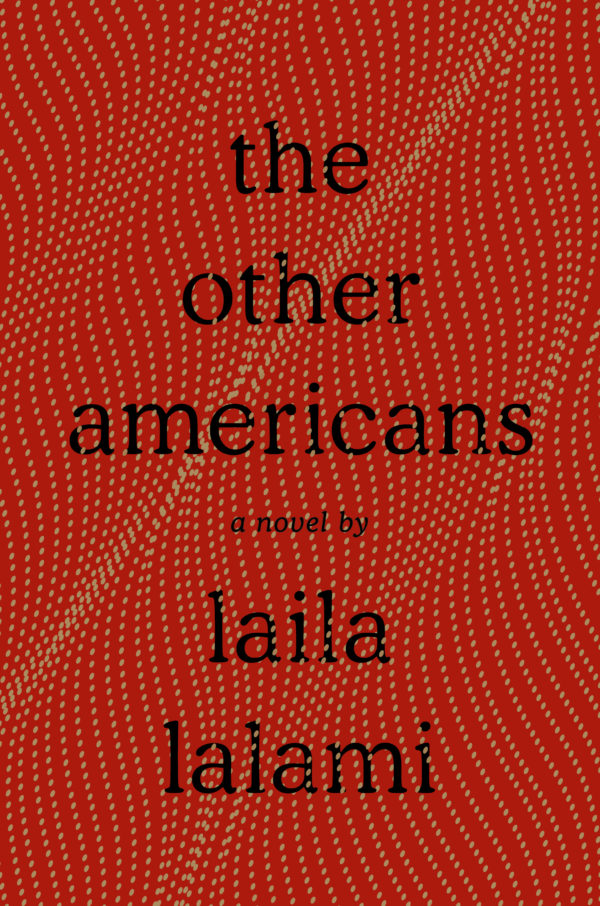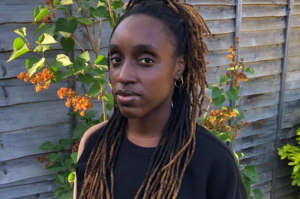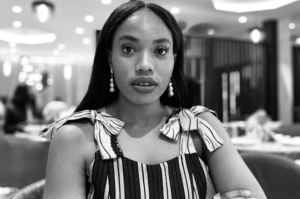
Laila Lalami’s new novel The Other Americans—released on 26 March 2019 by Pantheon, an imprint of Penguin Random House—is a family saga, a murder mystery, and a love story. The 320-page book traces the death of a Moroccan immigrant in the US whose demise brings together a range of characters “deeply divide by race, religion, and class.”
Recently, the novelist was featured in The New York Times‘ “By the Book” series, where she recommended her favourite Moroccan writers.
Here is an excerpt of The Other Americans published on Literary Hub.
________________________________________________________________
Maryam
I was trying to stay awake, so I switched on the radio and looked for Claudia Corbett’s show on KDGL. Usually, she’s on at lunchtime, and I listen to her while I’m peeling potatoes or chopping parsley, but the show is so popular that they rebroadcast it again at ten p.m. That night, a young woman was calling in to say she had gotten married just six months ago, but she and her husband were already fighting because he wanted to move to Portland to be a nature photographer, and she wanted to stay at her job with an insurance company in Salt Lake City, and neither one of them would change their minds. “Listen,” Claudia told her sharply, the way she does sometimes, when callers start to ramble and refuse to face the obvious, “nobody said that marriage was easy. Marriage is work.”
When we moved to America thirty-five years ago, many things took me by surprise, like gun shops next to barbershops, freeways that tangled like yarn, people who knocked on your door to talk about Jesus, twenty different kinds of milk at the grocery store, signs that said don’t even think about parking here. I remember pointing them out to Driss: they even have signs that tell you what you can’t think!
But above all, I was surprised by the talk shows, the way Americans loved to confess on television. Men talked about their affairs or addictions or gambling problems, women talked about their weight or plastic surgeries or the children they had outside marriage; even teenagers had something to say, mostly about how terrible their parents were—and all of it like it was a normal thing.
I couldn’t stop watching. The television sat on top of the supply cabinet in the back of the donut shop, and while I was washing dishes or mopping floors, I would watch Sally or Donahue, which in those days were on in the middle of the afternoon, when the shop was quiet. My brother had told me that watching television would help me improve my English, and I will say I learned a lot of new words, like paternity test and artificial insemination and AIDS epidemic, but my trouble was pronunciation, how easy it was to say “tree” when I meant “three,” or “udder” when I meant “other.” I needed a lot of practice.
In Casablanca, I had my two sisters, three uncles, and eight cousins, but here in California, my brother was the only family I had, and he lived a hundred and thirty miles away. I hadn’t realized how far that was until we went from seeing him every day to seeing him only once a month, and sometimes not even that often. For me, that was the hardest thing about living in America, being so far away, it was like being orphaned.
One day we went to the Stater Brothers on the 62. We had been living in the Mojave for about nine months by then, but this was our first winter here and we weren’t used to the cold, so I bundled up Salma in a green wool coat I’d bought for her at the Goodwill before we went to the store. She sat in the shopping cart, which was another thing that was new to me in America, but I let her, she liked the feeling of rolling around the store in the cart, and I didn’t see the harm in it. Looking through the coupons we’d clipped from the newspaper, I found a discount we could apply to a can of Hunt’s diced tomatoes, but I couldn’t see the brand anywhere on the shelf.
“I’m sure they have it,” Driss said. He was like that, he always had faith, even about silly little things, so while he looked for the can, I waited, shivering in my denim jacket. Then a woman pushed her cart past us, and in her wake I caught the scent of rose water. Instantly, I was back in Casablanca with my sisters, putting our hair in rollers and trying on different colors of lipstick, looking at our reflections in the dresser mirror, where a picture of Shadia was tucked into the frame, her hair in an elaborate bouffant we were trying to replicate. The radio was on, we were wait- ing for the DJ to play the Bee Gees, our friends were coming by later to watch an Egyptian movie starring Roshdy Abadha.
__________________________________________________
Read the full excerpt on Literary Hub.









COMMENTS -
Reader Interactions